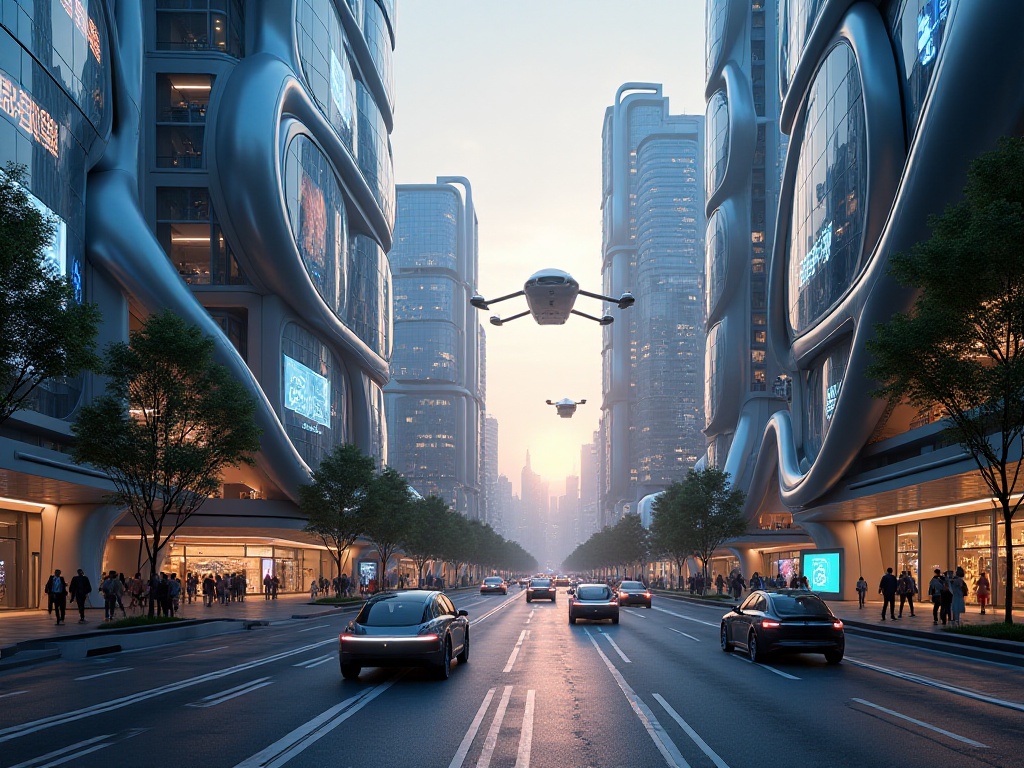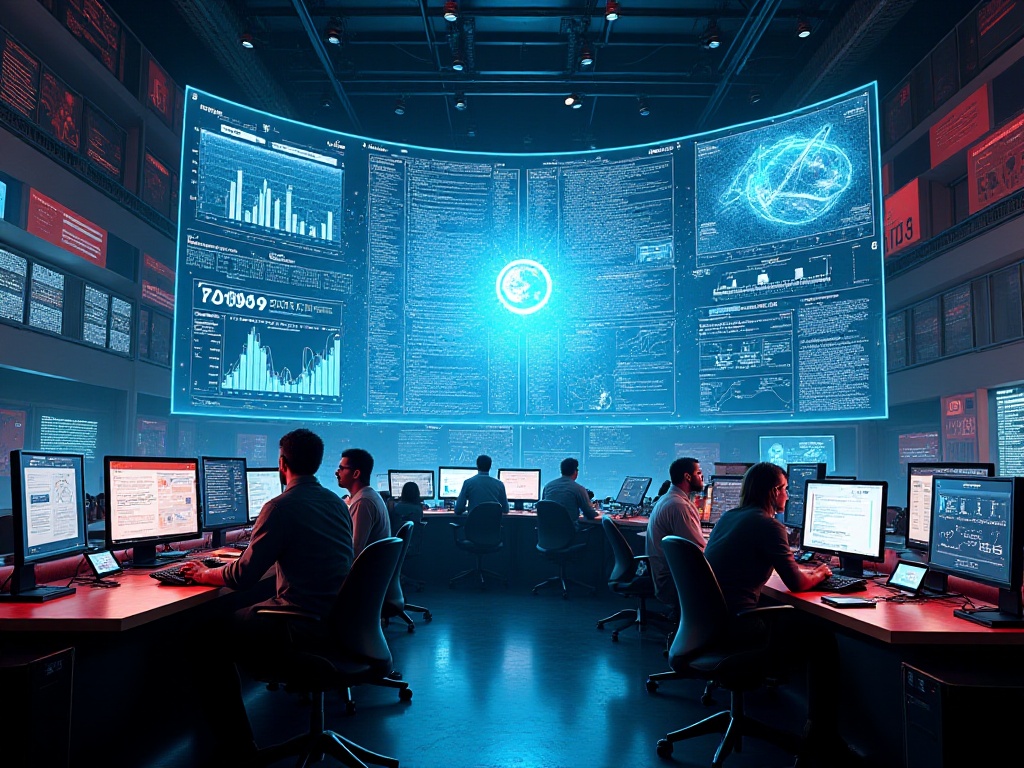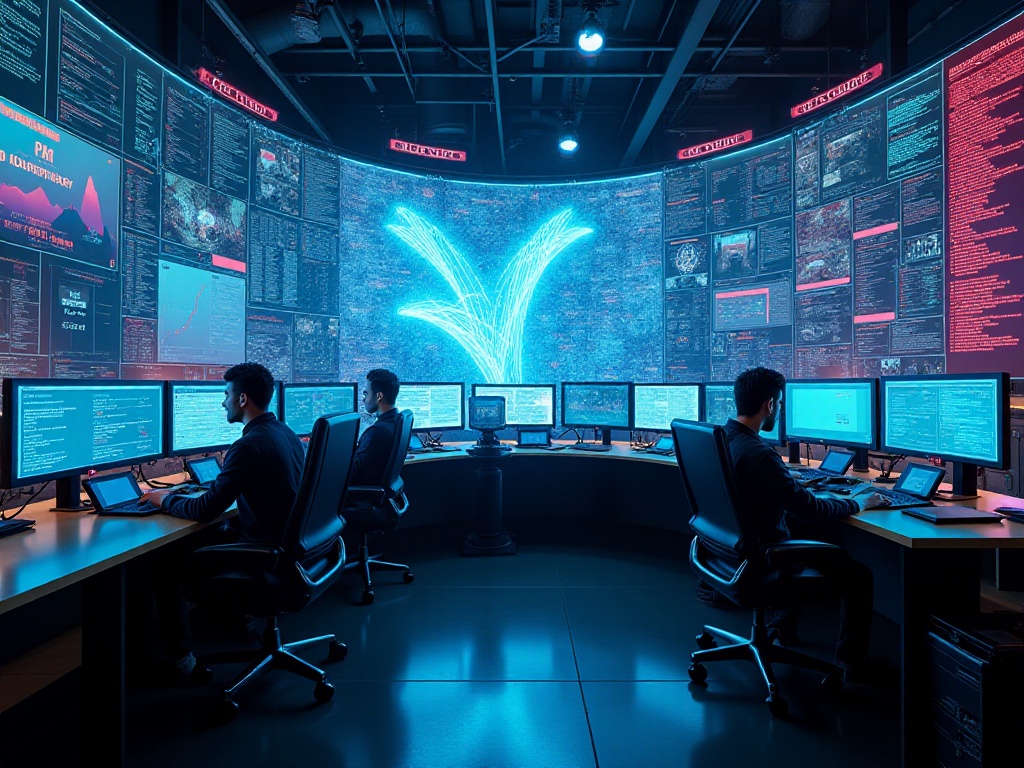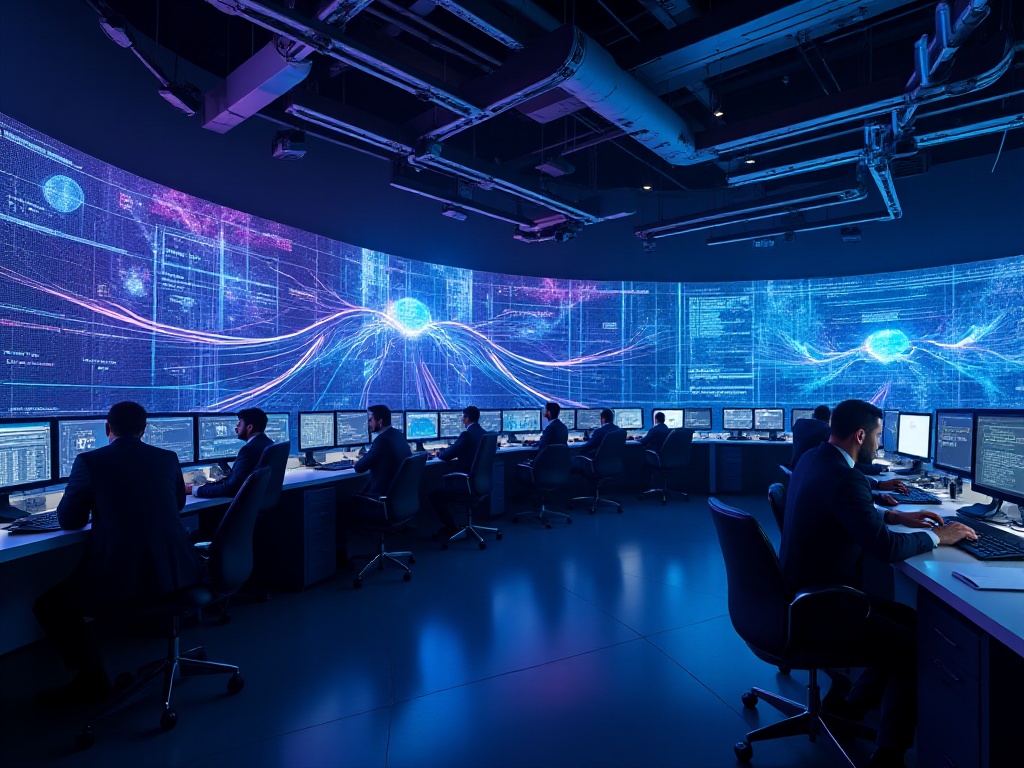To be honest, I've always had mixed feelings about AI assistants - both love and fear. But my personal experience in recent months has made me realize that AI has quietly transformed my lifestyle. Today I'd like to share my experiences and insights with you.
Good Morning AI
The first thing I do every morning is greet my AI assistant. It gives me a brief overview of my day based on my schedule. For example, "You have an important meeting at 2 PM today, suggest preparing 15 minutes ahead." Interestingly, it even gives me clothing suggestions based on the weather and reminds me to bring an umbrella.
Before using an AI assistant, I often forgot important things. Once, I almost missed a meeting with an important client because I didn't check my schedule in time. But since having an AI assistant, this has never happened again. It not only reminds me of my schedule but also intelligently analyzes the importance of various items to prioritize the most important ones.
I remember one rainy day when I was about to go out, it reminded me "80% chance of rain today, suggest bringing an umbrella." Sure enough, it poured that afternoon. These thoughtful reminders make me feel like I have a meticulous butler, quietly taking care of the details of my life. Moreover, it gives more personalized suggestions based on my habits and preferences.
For instance, it knows I like outdoor activities on weekends, so it starts monitoring the next day's weather the night before. If it finds the weather unsuitable for outdoor activities, it promptly reminds me and recommends some indoor exercise options. This intelligent service has made my life more organized and efficient.
Beyond basic schedule reminders, the AI assistant provides additional value-added services based on my lifestyle. For example, it tracks my sleep time, analyzes my rest patterns, and offers improvement suggestions. If it notices I've had insufficient sleep for several consecutive days, it gently reminds me to rest. This meticulous care has significantly improved my quality of life.
Smart Home
Speaking of home control, now almost all my home appliances can be voice-controlled. Air conditioner, TV, robot vacuum, even curtains can be controlled through the AI assistant. This smart lifestyle not only brings convenience but also greatly improves the quality of home life.
What impressed me most is its scene linking function. When I say "I'm going to bed," it automatically dims the lights, turns off the TV, and switches the air conditioner to cooling mode. This one-touch scene control has made my life exceptionally easy. According to statistics, after using the smart home system, my electricity consumption decreased by about 15% - that's real economic benefit.
The smart home system can also learn my living habits and automatically adjust various devices' working modes. For instance, it noticed I wake up at 7 AM every day, so it adjusts the bedroom temperature to the most comfortable level 15 minutes in advance. At 11 PM, if it finds I'm still watching TV, it kindly reminds me to rest. This intelligent life management makes me feel my life is more regular and healthy.
Furthermore, the smart home system can achieve more complex scene linking. For example, when I'm on my way home, it automatically turns on the air conditioner to preheat, so the indoor temperature is just right when I arrive. If I work overtime, it automatically adjusts the robot vacuum's working time to avoid disturbing neighbors. These thoughtful functions make me deeply appreciate the convenience technology brings to life.
In terms of security, the smart home system also performs excellently. It monitors various conditions in the house in real-time, and if it detects abnormal situations (such as gas leaks or water pipe leaks), it immediately sends an alarm and notifies me. This comprehensive security protection makes me feel especially secure.

Content Recommendations
In terms of content consumption, AI recommendations have really helped me a lot. Whether it's listening to music, watching videos, or online shopping, it always accurately captures my preferences. According to data, 78% of users believe AI recommendation systems have improved their content discovery efficiency. This personalized recommendation service prevents me from getting lost in massive amounts of information.
The most impressive thing about AI recommendation systems is their ability to understand users' deep-level needs. For example, it not only knows what type of music I like but can also recommend suitable playlists based on my current mood and situation. If it notices I've been under work pressure lately, it will recommend some light and cheerful music to help me relax.
In terms of video recommendations, the AI system's performance is even more impressive. It not only recommends content I'm interested in but also considers video quality and duration. For example, during my commute time, it prioritizes short videos, while on weekends it recommends longer videos or documentaries. This intelligent recommendation makes my viewing experience more enjoyable.
However, I've made an interesting discovery: although AI recommendations are accurate, they can sometimes lead to information cocoons. Have you noticed that if you always watch the same type of content, recommendations become increasingly narrow? So now I deliberately click on different types of content to make recommendations more diverse. This active breaking of algorithms has exposed me to more interesting content.
In terms of shopping, the AI recommendation system also performs excellently. It not only recommends products based on my shopping history but also analyzes price trends and reminds me when prices drop. Once when I wanted to buy headphones, it told me to wait two days for a shopping festival, and sure enough, the price dropped by 20% at that time. This intelligent shopping assistant has saved me a lot of money.

Business Analysis
As an entrepreneur, I particularly rely on AI for data analysis. It can quickly process massive data and provide precise market insights. For example, by analyzing user behavior data, we found Tuesday morning is the best time to place ads, which increased our ad conversion rate by 23%. This data-driven decision-making approach has greatly improved our operational efficiency.
AI can not only do simple data analysis but also discover deeper market patterns. For instance, by analyzing numerous user comments, it found areas for improvement in certain features of our products. These insights helped us adjust our product strategy timely and improved user satisfaction.
In competitive analysis, AI also performs excellently. It can automatically collect and analyze competitors' product information, pricing strategies, and market responses, helping us develop more competitive business strategies. Once we adjusted our product pricing based on AI's analysis results, and sales increased by 35%.
AI can also help us predict market trends. By analyzing historical data and market changes, it can fairly accurately predict future market directions. This predictive capability allows us to plan ahead in product development and marketing. For example, last year we laid out a new market area based on AI's predictions, and now we've achieved good results.
In customer service, AI applications have also brought significant effects. After using the AI customer service system, we not only greatly improved response speed but could also discover product issues and potential user needs by analyzing customer conversations. This information has been very helpful in improving our product and service quality.

Video Creation
Recently, I started trying to use AI to create video content. Did you know? Now you just need to input text, and AI can automatically generate a complete video, including voiceover, subtitles, and background music. This has greatly lowered the barrier to content creation, allowing ordinary people like me to easily produce professional-quality videos.
My first AI-generated video received over 5,000 views, making me realize the potential of AI creation. However, I also found that content purely generated by AI often lacks human warmth, so now I add my own creativity and ideas based on AI-generated content. This human-machine combined creation method ensures both efficiency and content uniqueness.
AI's application in video creation goes far beyond this. It can also help me with video editing, special effects, and color adjustment. For example, I just need to simply describe the desired effect, and AI can automatically complete the corresponding post-processing. This convenient creation method allows me to focus more energy on content conceptualization.
In live streaming, AI also provides many useful functions. Such as real-time beauty filters, background blur, voice optimization, etc. These functions make my live streams more professional and improve the viewing experience for audiences. Interestingly, AI can also analyze audience interaction data during live streams to help me optimize content and timing.
Moreover, AI can help me with content planning. By analyzing hot topics and user interests, it can provide content creation suggestions. For example, which topics are more popular, what time is best for posting, etc. These suggestions are very helpful in improving content distribution effectiveness.

Future Outlook
Watching the rapid development of AI technology, I often wonder: what will our lives be like in the future? Will there be a day when we completely rely on AI to live? This question is worth thinking about for each of us. Although AI brings us many conveniences, we need to maintain a clear understanding and not completely rely on it.
According to McKinsey's research report, by 2030, AI technology will bring an additional $13 trillion GDP growth to the global economy. This number is staggering, but at the same time, we should be alert to potential risks of over-reliance on AI. Issues like privacy security and algorithmic discrimination need to be taken seriously.
I believe the future relationship between AI and humans should be collaborative rather than replacement. AI can help us handle repetitive work, giving us more time and energy for creative things. However, in key decision-making and emotional communication, human roles are irreplaceable.
In terms of technological development, I expect AI will achieve breakthroughs in more fields in the coming years. For example, AI has huge application potential in medical diagnosis, education and training, environmental protection, etc. These advances will bring profound impacts to human society.
However, we should note that while embracing AI technology, we need to maintain humanized thinking. Technological development should not make us lose real connections between people, but should help us build better interpersonal relationships.
How do you think AI will change your life? Welcome to share your thoughts and experiences in the comments. If you're also using AI tools, feel free to share your experiences. Let's discuss this topic together.
Remember, AI is ultimately a tool, the key is how we use it wisely. Looking forward to seeing your thoughts.








